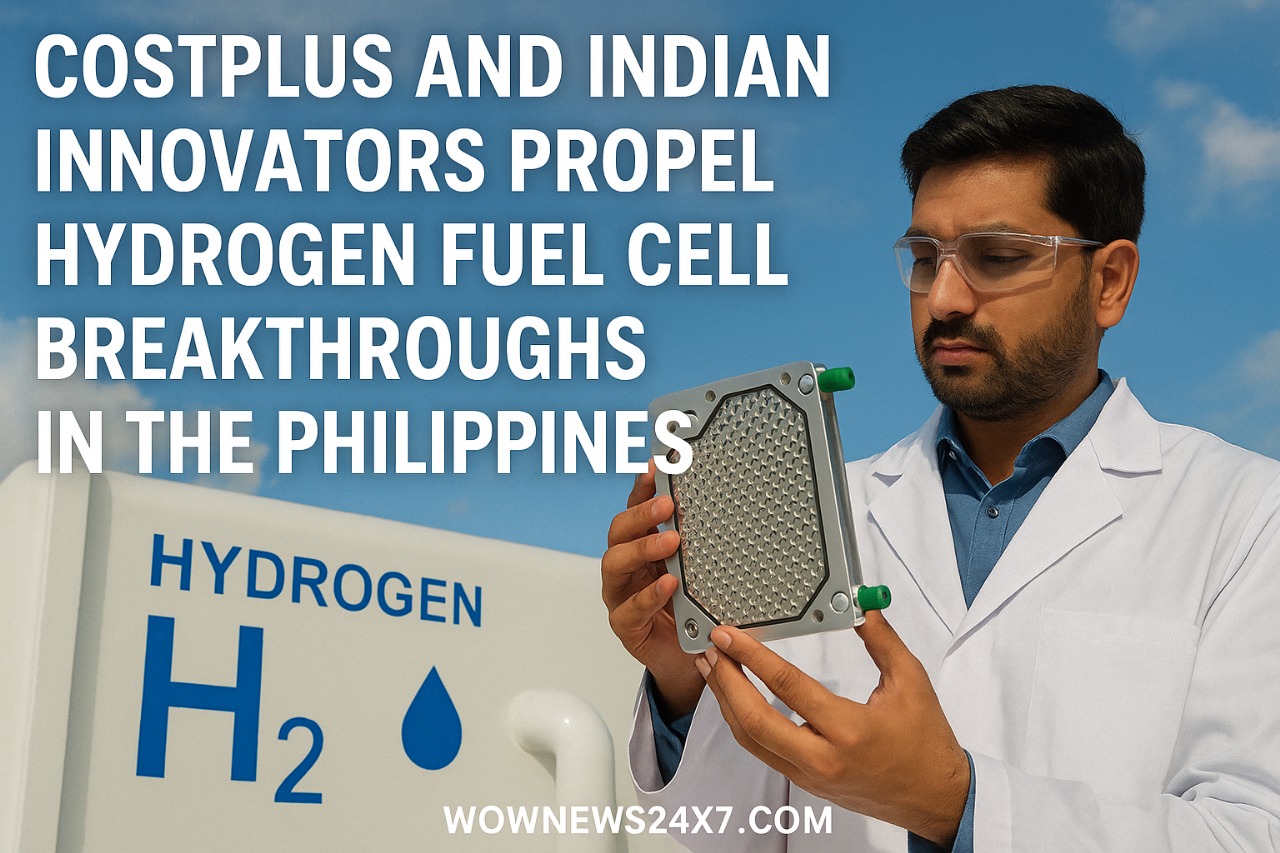Key Highlights
CostPlus, in partnership with several Indian technology firms, has embarked on a game-changing initiative to introduce advanced hydrogen fuel cell systems to the Philippines, marking a critical leap in the nation’s pursuit of renewable energy solutions and emission-free transport.
The collaboration leverages India's expertise and rapid adoption of hydrogen fuel technologies, underscored by successful pilot projects and public-private partnerships launched under the National Green Hydrogen Mission.
Strategic Importance and Partnership Details
The venture, formalized during recent Indo-Philippines business forums, is one of eighteen landmark deals covering energy, transport, and industrial technology signed between Filipino and Indian business leaders this month.
CostPlus will deploy solar-integrated hydrogen fuel cell stacks custom-designed for the Philippine climate, enabling reliable off-grid power and clean e-mobility platforms for urban and rural communities.
Indian firms, drawing on their advances in hydrogen vehicle trials and green hydrogen manufacturing, will supply technical and engineering expertise—essential for scaling fuel cell adoption cost-effectively.
Technical Innovations and Market Impact
The joint technology rollout promises to accelerate the deployment of hydrogen-powered vehicles, including buses, tricycles, and commercial fleets, addressing the Philippines' growing need to diversify its energy mix and reduce carbon emissions.
CostPlus engineers will oversee training, installation, and maintenance, ensuring knowledge transfer and local capacity-building for hydrogen energy applications.
The advanced hydrogen fuel cell systems boast rapid refueling, high energy efficiency, and resilient operation under local weather conditions.
Economic and Environmental Benefits
The Philippines currently relies on fossil fuels for more than 67 percent of its energy needs, making the shift to hydrogen vital in meeting climate commitments and supporting sustainable industrial growth.
Solar-hydrogen hybrid systems will power remote areas, boosting energy access and reliability while supporting national net-zero targets.
The transition is expected to generate new jobs in clean energy manufacturing, vehicle assembly, and technical support, while also catalyzing small business opportunities in the supply and maintenance chain.
The Indo-Philippine Clean Energy Corridor
The collaboration builds on India’s global leadership in renewable hydrogen, with recent pilot deployments of hydrogen trucks and buses serving as templates for scalable rollout in Southeast Asia.
A knowledge exchange program will bring Filipino engineers to India for hands-on experience in hydrogen production, fuel cell assembly, and ecosystem integration under India’s Green Hydrogen Mission.
The partnership will also open doors for joint research, future commercial ventures, and regional infrastructure projects.
Challenges and Future Outlook
Cost remains a hurdle, with hydrogen fuel cell systems presently more capital intensive compared to fossil fuel alternatives, but economies of scale and shared R&D are expected to drive down prices.
Stakeholders aim for a gradual expansion, starting with select urban pilot zones and building out fueling stations for broad national coverage.
Regulatory incentives and targeted subsidies will be crucial for accelerating adoption and ensuring a competitive local market.
Conclusion
The introduction of advanced hydrogen fuel cell technology through the CostPlus-Indian partnership is set to redefine the Philippine energy landscape. By tapping into India’s innovative capacity, the country stands poised for cleaner, more resilient energy and transport solutions, echoing global trends toward decarbonization and sustainable growth.
Source: Export Marketing Bureau, August 18, 2025
